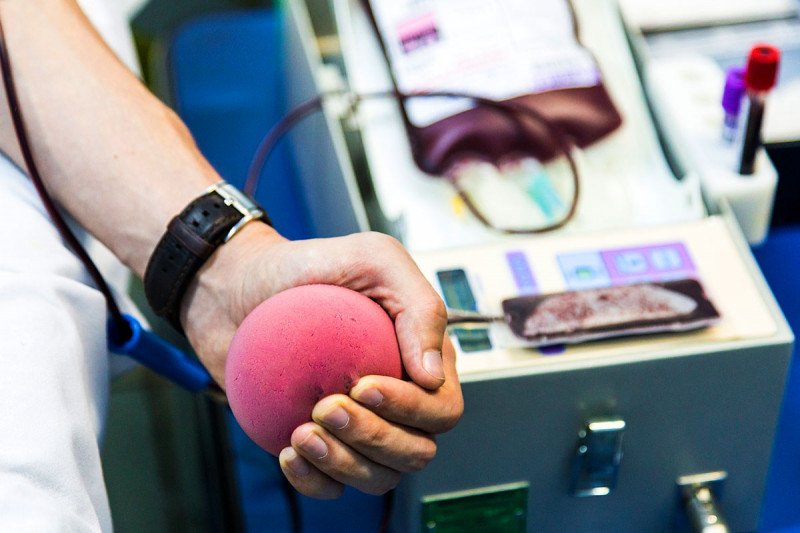
The national blood shortage has been especially hard on people with cancer because they require more blood than other people who are ill.
An unprecedented national blood shortage is driving hospitals across the country, including Memorial Sloan Kettering, to double-down on donations.
The extraordinary demand for blood and blood products is yet another consequence of the COVID-19 pandemic. Many people delayed medical care during the pandemic and are now presenting with more advanced disease, which can require more aggressive treatment. Blood donations also tend to drop each summer as people travel, and this year’s numbers are expected to drop even lower as people are eager to travel after being quarantined for the past year. A tragic increase in gun violence, drug overdoses, and other trauma during the pandemic has also led to a depleted inventory.
“In a year defined by tumultuous events, it seems remarkable that we again are operating in unprecedented circumstances,” Chris Hrouda, President of the American Red Cross Biomedical Services, said in a statement. He added that the Red Cross is distributing much more blood than it did before the pandemic, primarily the blood type O positive, leaving inventories alarmingly depleted.
Necessary for People with Cancer
Blood donations are especially crucial for people with cancer because many cancer treatments impair the bone marrow’s ability to make blood cells, says Melissa Pessin, Chair of the Department of Laboratory Medicine at MSK.
“People with cancer are heavily dependent on blood transfusions to provide what their bodies cannot during treatment,” she says. MSK also relies on blood transfusions during surgeries that result in heavy blood loss.

MSK patient David Salway needed transfusions.
David Salway of Delmar, New York, knows the importance of blood donation firsthand. He was diagnosed with multiple myeloma a year ago and had a stem cell transplant at MSK in January. He depended on blood transfusions as his immune system built back up.
“It’s troubling to hear about the shortage because transfusions were vital to my treatment,” he says. “Whenever I needed one, it was a comfort to know I could get one.”
The nationwide shortage means that hospitals must allocate blood for the patients who need it most urgently. As was the case during the height of the pandemic, this may lead to the postponement of some elective surgeries as hospitals build back their supply. MSK has already put into place a tighter review of the use of blood products in the hospital and is urging all eligible employees, their families, and friends to donate.
How You Can Help
Donating blood is simple and safe, and every donation counts.
“Every unit of blood is needed to help our patients,” Dr. Pessin says. “I myself gave a unit as soon as I heard there was this level of shortage.”
Dr. Pessin says the shortage is expected to last through the summer. A person can only donate blood every 56 days, but each donation expires after 42 days, so it’s important to space out donations.
“We don’t want everyone to come right away and not have any donors available next month,” she says. “The best way to donate is to make an appointment.”
- Demand for blood has increased for surgeries delayed by COVID-19.
- Cancer patients are especially vulnerable because they rely on transfusions.
- People can donate every 56 days.


